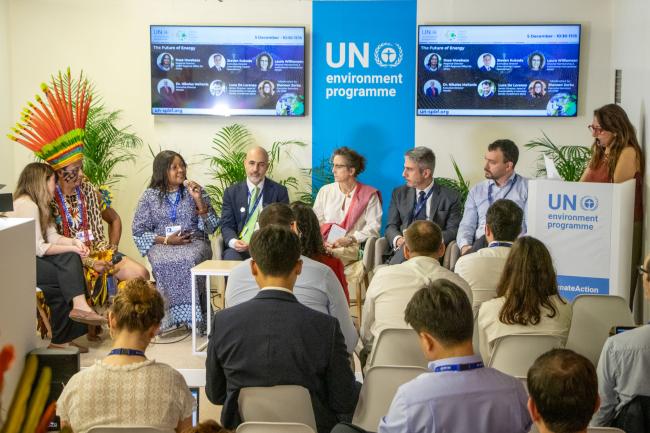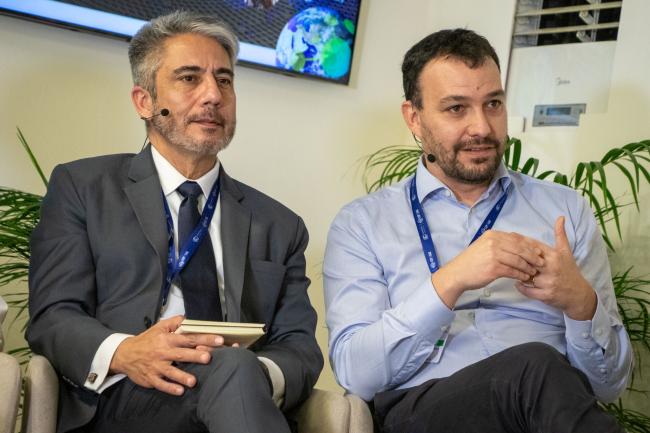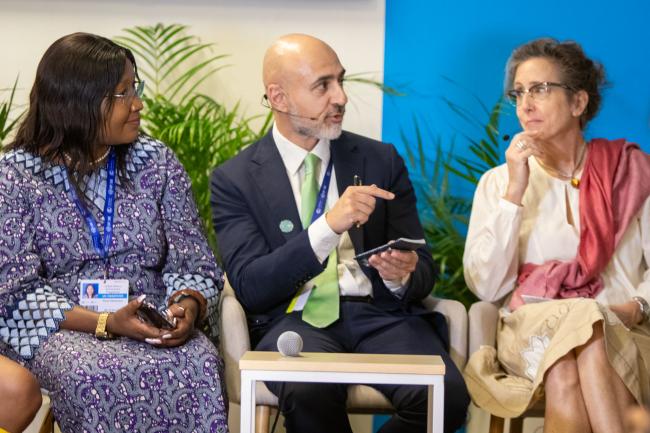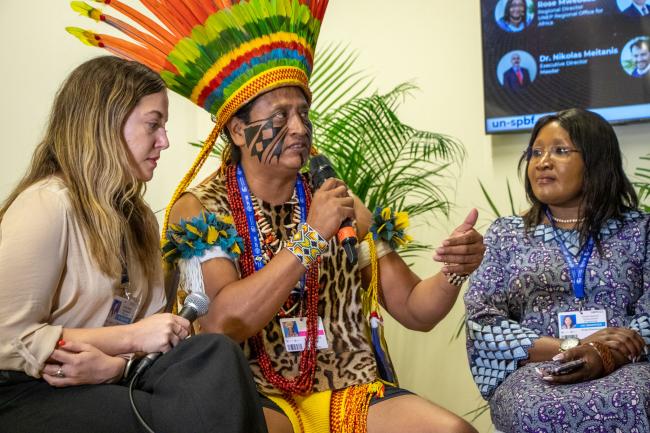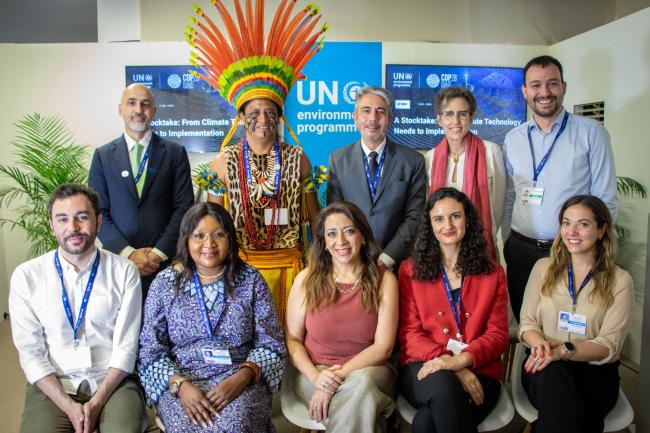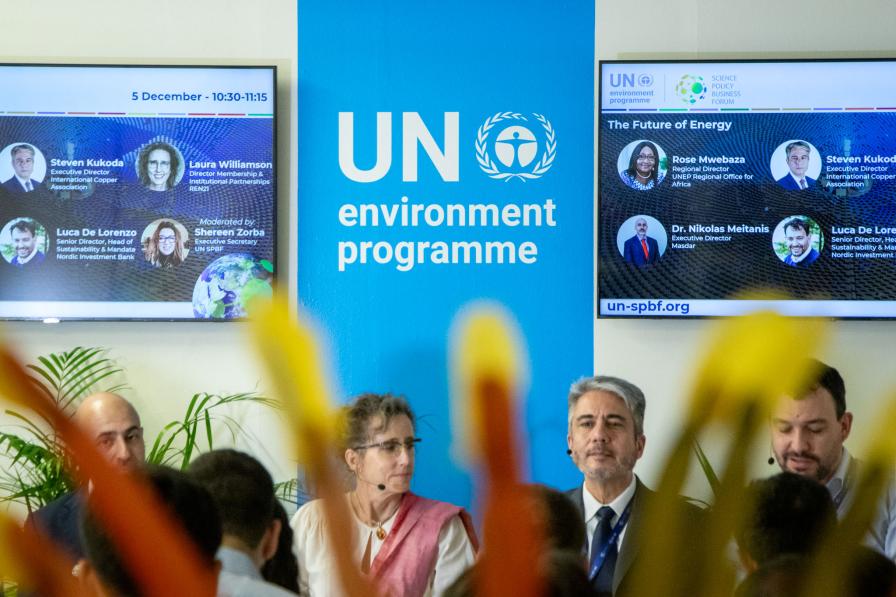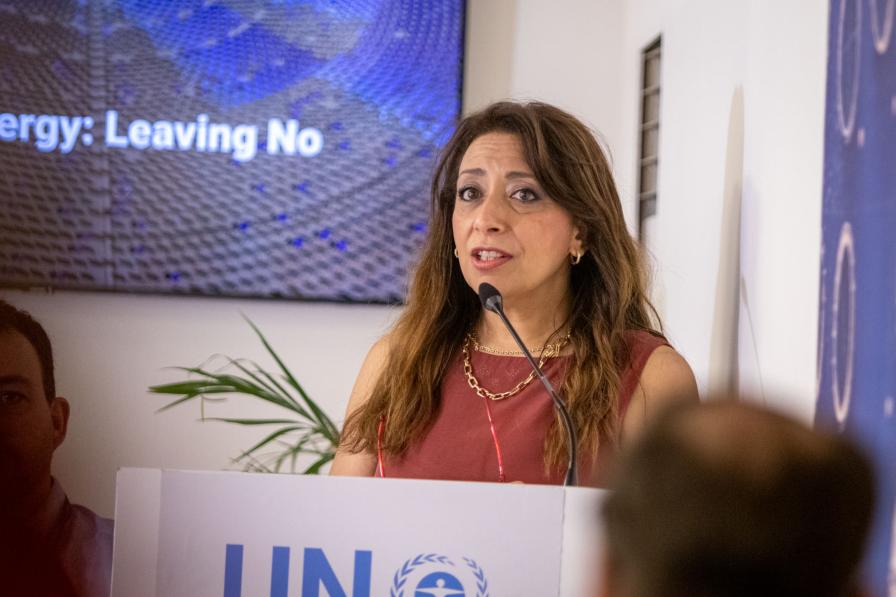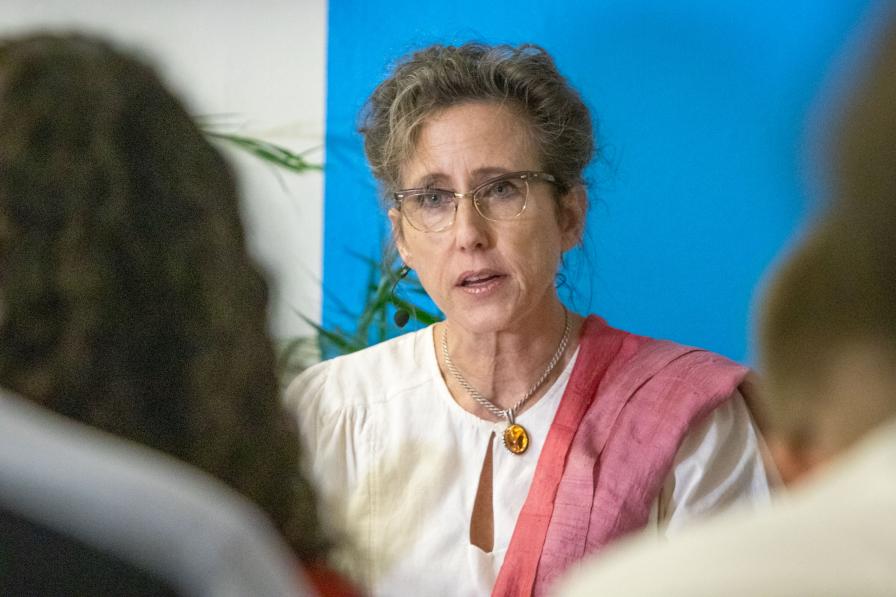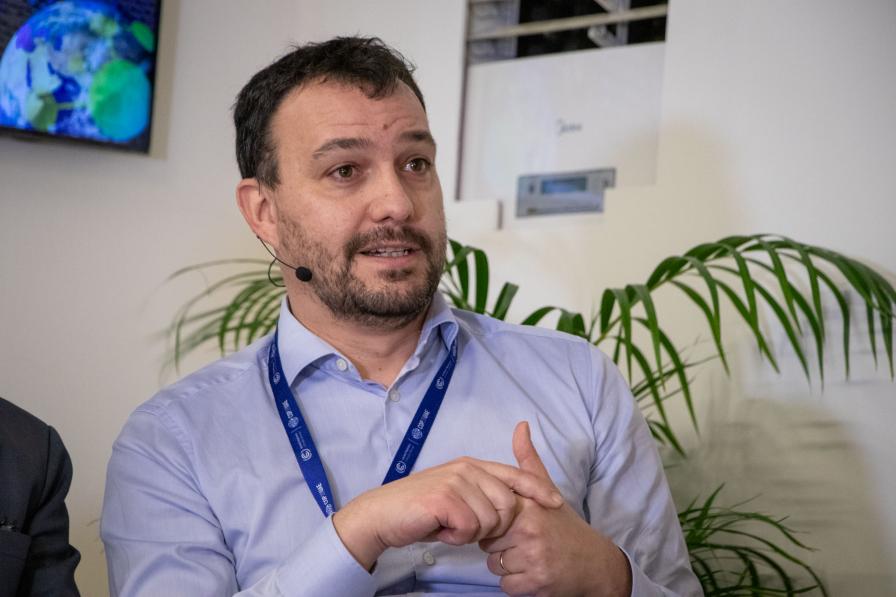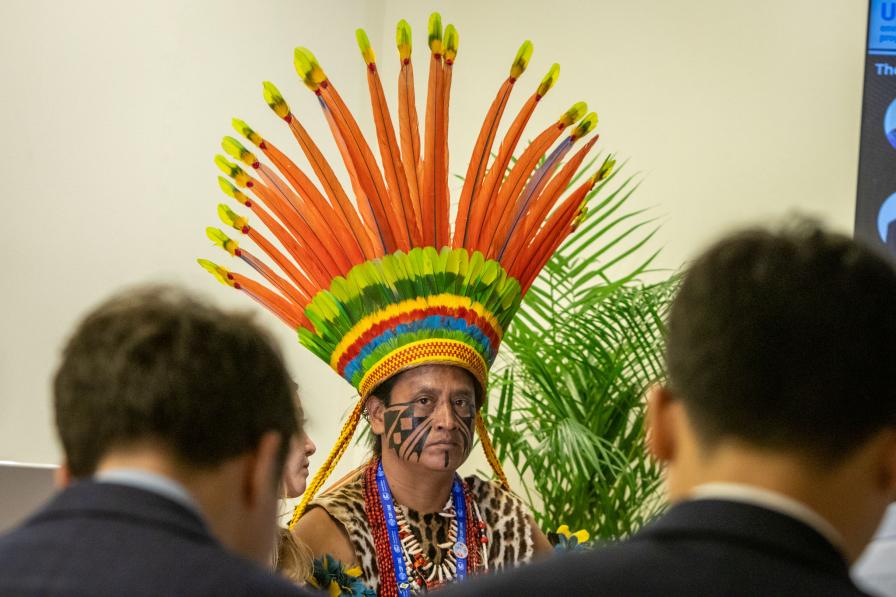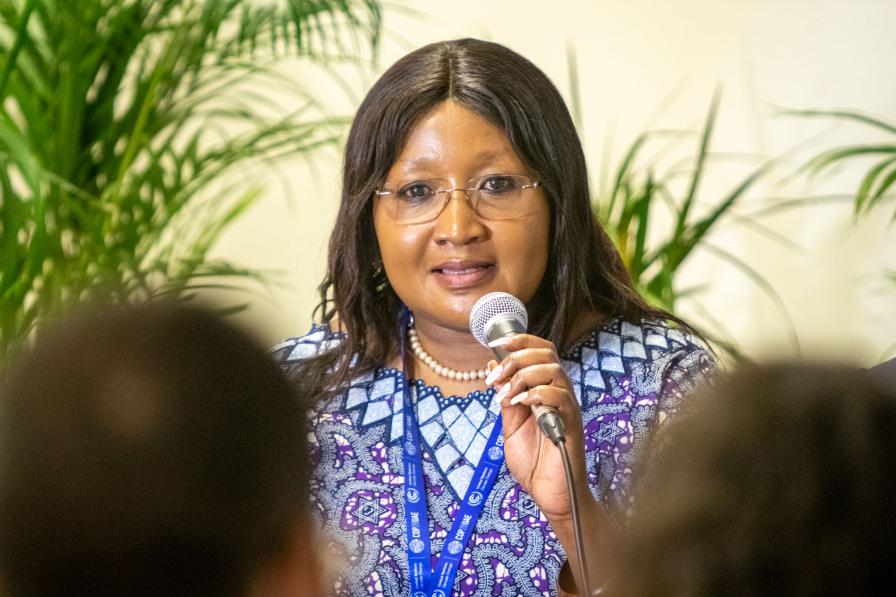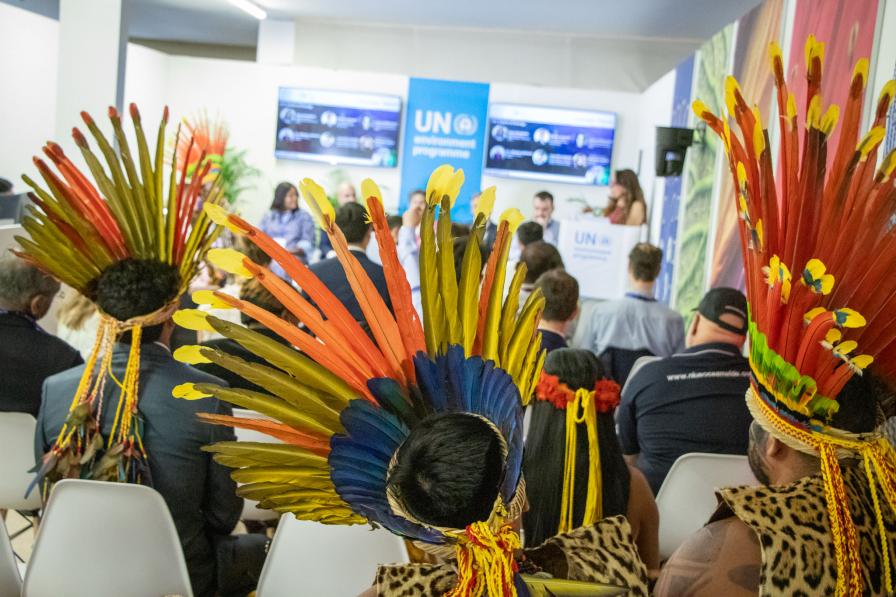Highlights and images for 5 December 2023
UNEP Pavilion @ COP 28, Dubai, United Arab Emirates
The Future of Energy: Leaving No one Behind
Investments in renewable energy technologies have accelerated, reaching USD 1.7 trillion in 2023. Yet
the race to net-zero risks leaving developing countries behind, as access to these technologies and
disruptions to supply chains pose significant obstacles to their diffusion and implementation. Held
on Energy Day, this high-level leadership dialogue focused on unlocking flows of investments and
harnessing the power of industry to achieve leaps forward in renewable energy development in
socially just and inclusive ways.
Shereen Zorba, Head, the UN Science-Policy-Business Forum (UN-SPBF), moderated the dialogue and
opened the conversation by asking participants to reflect on COP 28 highlights, including pledges by
countries to triple renewable capacity, company pledges on methane to reach net-zero emissions by
2030, and the World Bank’s emphasis on transitioning away from fossil fuels, especially coal.
Luca De Lorenzo, Nordic Investment Bank, stressed raising ambition and meeting the challenges of
achieving a just transition in clean technology, which requires inclusivity. Steven Kukoda,
Executive Director, International Copper Association, and Laura Williamson, REN21, welcomed a twin
focus on energy efficiency and scaling up renewables.
Nikolas Meitanis, Masdar, underscored that more must be done to translate demand into renewables,
urging COP 28 to be inclusive, action-oriented, and pragmatic. Rose Mwebaza, UN Environment
Programme (UNEP) Regional Office for Africa, applauded the tying together of energy, climate, and
just transition at COPs, but stressed that the focus needs to go beyond energy and bring into view
inclusivity, job opportunities, grants for developing economies, and projected population increases
in Africa.
Genilson André Kezomae, Indigenous rights activist, Brazil, noted the great potential for renewable
energy development in his country, but stressed that most of these resources are on Indigenous
lands, such as his own. He underscored that Indigenous Peoples must be consulted by law, but that
this is not happening, and that they must be recognized as the owners of waters that run through
their land.
On the topic of approaches to achieving sustainable renewable energy projects, Meitanis highlighted
partnerships with local stakeholders and tailored solutions while pioneering new technologies, such
as low-wind speed projects in the United Arab Emirates. He underscored the need for diversity in
energy systems and emphasized that there can be a gradual transition to a decarbonized energy grid
in the next couple of decades.
Mwebaza emphasized that Africa is at the point where renewables can be scaled up, including solar,
wind, and geothermal resources. She noted that the key to unlocking this potential is investment at
scale and that pooled energy funds that make investments across countries can achieve economies of
scale.
On barriers to renewable energy adoption, Williamson underscored the need to look at energy demands
beyond the power sector, such as mobility and heating. She urged investments in developing countries
that presently see little investment in renewables, building capacity through training for
decision-makers and workers, and extending resilient power grids to people with the involvement of
local communities.
On ensuring that the development of renewables is itself a cleaner process, Kukoda emphasized that
copper and mineral industries are essential for decarbonizing, and that social acceptance of this
work is a key barrier. He said the copper industry is committed to achieving net-zero by 2050 “full
stop,” and that environmental certification processes are in place. He noted that copper is key to
circular economies, as it is “infinitely recyclable.”
De Lorenzo stressed the need to ramp up the pace of change, and that the Nordic Investment Bank
looks at impact, which means that fossil fuels are “out of the question” and “we need to be serious
about phasing them out.” He said Environmental and Social Safeguards are essential and that nature
and biodiversity impacts must be part of the decision-making. On financing, he noted that financial
spreads are larger in the global South, which is symptomatic of the market recognizing risk, and so
de-risking, new thinking, and financial structures that couple grants and private capital are
required. Meitanis and Kukoda stressed the need to achieve “bankability” so that investors come on
board, while Williamson urged shifting away from a focus on de-risking and toward a focus on social
and economic development.
Closing with a round of reflections on the role of Indigenous Peoples and Indigenous rights, all
participants underscored the need to put Indigenous communities at the heart of renewables by
providing them with jobs and energy. Kezomae urged the just participation of local communities at
all stages of decision-making, and he stressed that if a project’s risk to the environment is too
high, alternatives should be sought. He noted that the cost of energy is high in Brazil, which is
not fair “because the energy comes from nature and nature belongs to the people.” Kezomae emphasized
that issues of access must be taken into consideration, and Indigenous Peoples must have full
participation in social and economic development.
Select Images
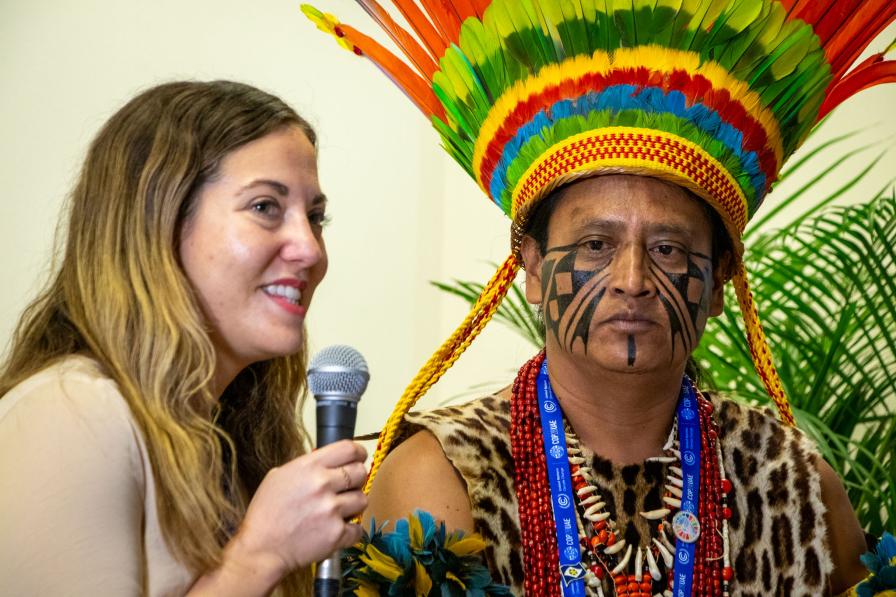
Clara Wegenast, UNEP, provides Portuguese/English interpretation for Genilson André Kezomae, Indigenous rights activist. Photo by IISD/ENB | Angeles Estrada
